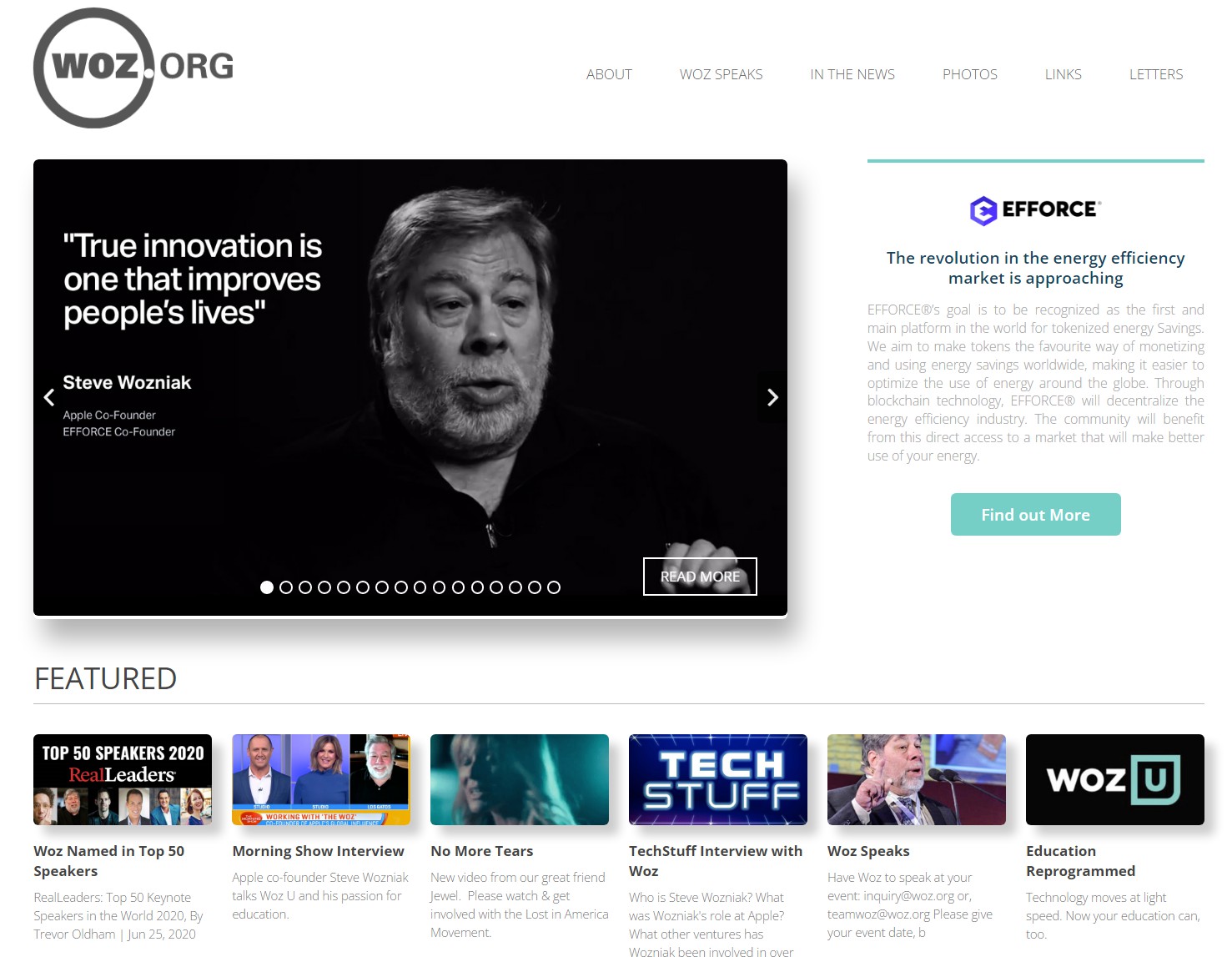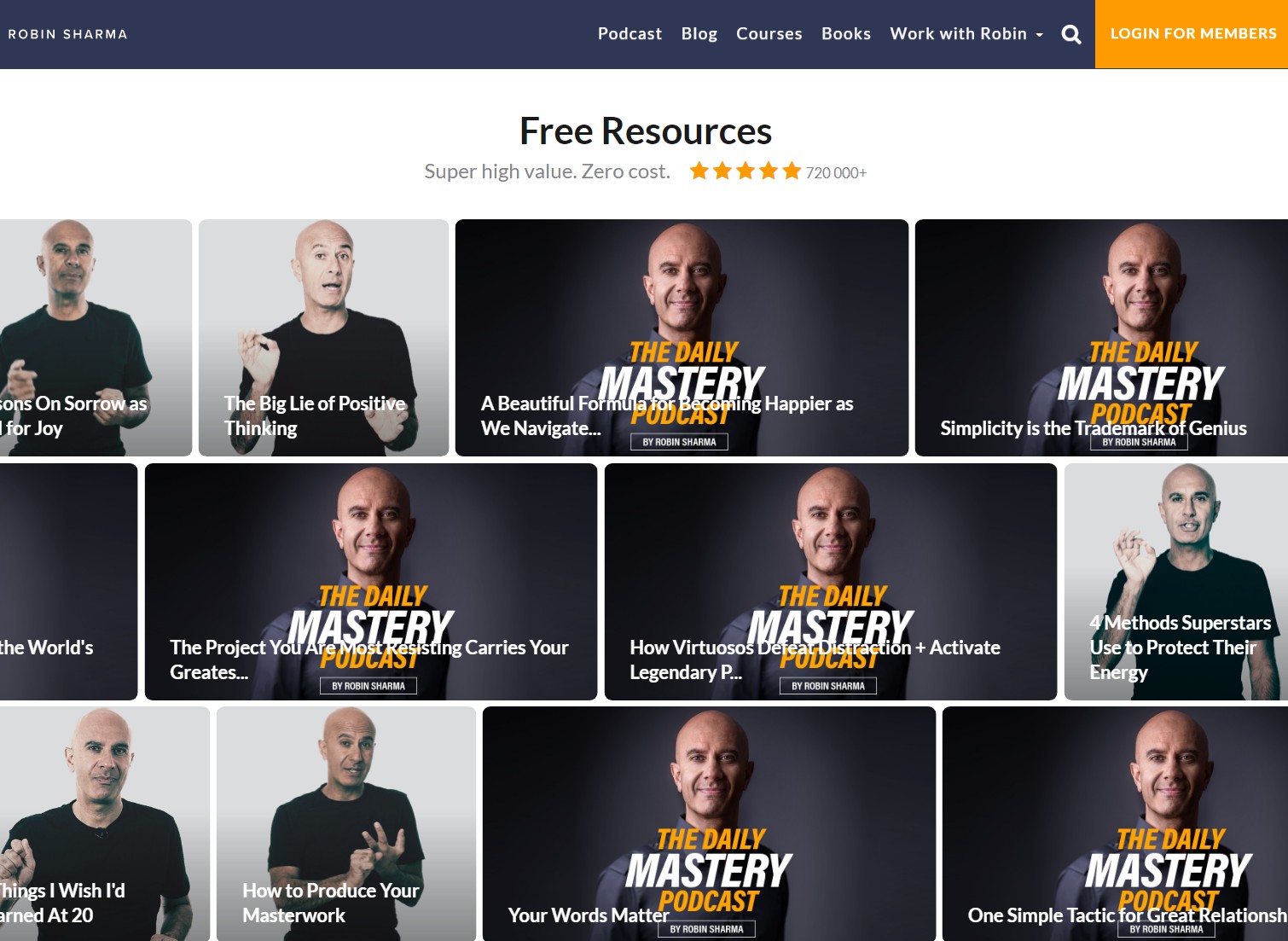How to Boost Your Speaker Profile With a Website

Even working as a speaker, you can stake your place as a leader, expert and authority in your field by showing up online with an engaging website. Your website is one of the most powerful tools available to market your business and build your brand. Let's look at some ways of increasing your speaker profile with a website.
Talk About Yourself
Your speaker profile page is a great place to talk about yourself and let people know your qualifications for public speaking. If you're trying to catch the attention of event coordinators or hiring managers, this is their first stop. Let them know what you bring to the table and how it will benefit their audience.
Use photos, videos, and testimonials to showcase your personality and speaking style. Don't forget to update your website after each event so potential clients can see what you're doing now.
If you are a keynote speaker at a major conference, take advantage of that by adding it to your profile page. It's proof that someone else in your industry thinks you're worth listening to, which is a great endorsement!
Stay Focused

Caption: Apple co-founder Steve Wozniak’s speaker website is a great example of a focused site.
The biggest mistake speakers make when they launch websites is trying to be all things to all audiences. They think they need a different message for everyone, so their sites can become a confusing mess that doesn't appeal to anyone.
A great way to narrow your focus is by taking inventory of the topics you speak on and see which have the most traction with your audience. In other words, what are the topics that generate the most interest?
For instance, if most of your speaking engagements are for higher education events, then make sure your site caters to that specific audience — don't just throw in a handful of higher ed speaking clips among dozens of other topics.
Narrowing the focus but going into greater depth will also emphasize your expertise. For example, don't just say, "I speak about social media." Instead, go into more detail, such as "My focus is on how businesses can leverage LinkedIn as part of their social media strategy." The more specific you can get with your core topics, the better.
Offer Free Content

Caption: Robin Sharma’s website offers a ton of free content for visitors to browse.
Providing helpful information for free can help build an online following of potential clients. Some ideas are:
-
Free audio downloads
-
Articles in PDF format
-
Videos that showcase your expertise
-
A weekly or monthly email newsletter
-
Free eBooks
Customize Your Website for the Audience You Want to Attract
Remember that the goal is to get people to hire you. Your site isn't about you; it's about the audience you want to attract and the experience they'll have with you as a speaker. Who are the people who would most benefit from your services? How can you show them that hiring you would be great for their event?
Ensure everything on your site is customized for the audience you want to attract. For example, if your ideal client is a company looking to hire motivational speakers, don't use language that sounds too casual or cutesy.
Keep Your Website Visitors’ Data Safe
As you build a website, remember that one of the critical ingredients is security. Today, digital platforms are at risk, and even the most prominent companies are at risk of their data getting stolen.
There are, however, several things you can do to improve website security to keep your visitors safer. Some examples are:
Use a valid SSL Certificate - This digital certificate ensures that any information that users submit on your website is encrypted and sent securely to your web server, keeping your customers' data safe from hackers.
Enforce Strong Passwords - If you allow visitors to subscribe or login to your website, then require them to use strong passwords. A strong password contains at least eight characters and includes both letters, numbers, and special characters.
Keep Applications Updated - Updating your software will help keep your website visitor's information protected from hackers, who are always looking for vulnerabilities they can exploit. This includes plugins, themes, and apps that you may have installed on the site.
Looks Matter: Your Website Reflects Your Professionalism
Your speaker portfolio website is a representation of you. It’s your digital business card. Its purpose is to give people enough information to feel confident in your expertise, reliability and ability to deliver what they need.
If you want to be seen as an expert, your website needs to look like an expert created it. It should be easy to use and answer all of a prospective client's questions, while looking professional, clean, and focused on generating leads.
There are plenty of tools and services to help you build a great site in no time, including Wix, Squarespace and Weebly. Consider hiring a freelance designer if you feel it's too much of a challenge for you personally to take on.
Register a Custom Domain Name
Invest in a domain name. This is the first thing people will look for when they want to find out more about you, so ensure it's easy to remember, and simple to spell and type. And make sure it's not too long or confusing — there should be no question about its format or how it's spelt.
You can spend less than $10 per year on domain registration at GoDaddy, NameCheap or similar, but consider paying a bit more for domain privacy protection. Avoid free domain name services — they're not professional-looking, and your site will look cheap as a result.
Make Sure You’re Contactable!
Make it easy for people to connect with you by including contact information prominently on your site. Don't make people dig through multiple pages or fill out a form to ask a question or book you for an event.
Provide an email address that clarifies what topics you specialize in. For instance, if you specialize in motivational speaking, you might include "motivation" in the email address itself (e.g., [email protected]).
Use this address on all promotional materials related to your motivational talks so people will associate you with the topic.
You can also use social media integration to let clients know about your presence on other platforms.
Conclusion: A Great Website Can Open Doors
Landing your first paid speaking engagement can be a challenge, and earning enough to earn a living from speaking is even harder. A great website can help you get there by boosting your speaker profile and opening doors for engagement.
About the author:
Jason Chow is a part of the Content and Outreaching team at WebRevenue. He loves to meet with new people - both online and offline. He also contributes articles about internet marketing that help small businesses to thrive. You can connect with him via social platforms.




